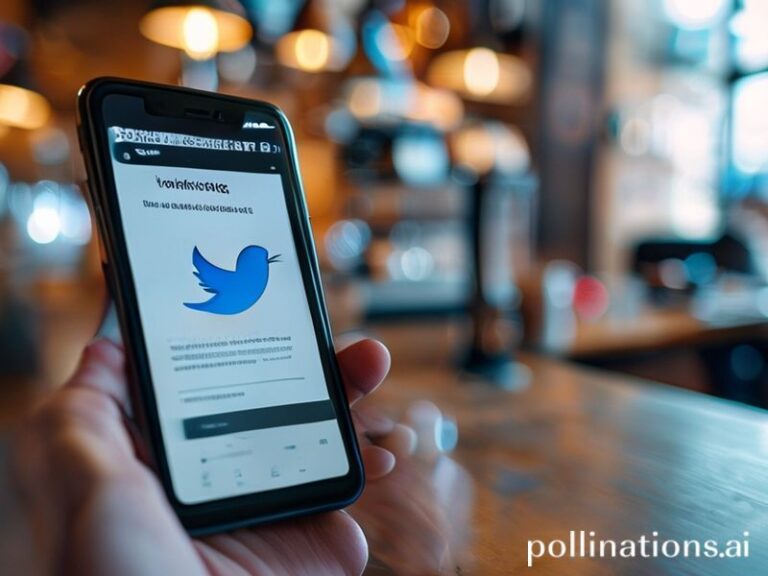Harry Potter and the $32B Global Hangover: How a Boy Wizard Became Earth’s Mother Tongue of Escapism
Harry Potter and the Global Hangover: How a Boarding-School Fairy Tale Became the Planet’s Shared Mother Tongue
Twenty-seven years after a broke single mum on a delayed Manchester-to-London train sketched out a story about a boy with a facial scar and a talent for property destruction, the Wizarding World has metastasized into the closest thing humanity has to a secular religion that also sells expensive popcorn. From Lagos hawkers flogging knock-off “Hogwartz” scarves to Berlin bureaucrats using “Muggle” as shorthand for anyone who still files taxes on paper, the franchise has achieved the rare feat of being more omnipresent than oxygen yet somehow lighter than the plastic wand that comes in the Happy Meal.
Consider the geopolitics. When the Chinese government briefly banned the books for promoting “bourgeois spiritual pollution,” local entrepreneurs simply swapped the cover art and sold them as “Study Guides for Rebellious Orphans.” Meanwhile, in Saudi Arabia, religious police confiscated broomsticks during Halloween—apparently worried that teenagers might actually achieve lift-off before the national carrier does. And let us not forget the British Council’s soft-power coup: nothing dissolves post-Brexit resentment quite like free screenings of Chamber of Secrets in former colonies still salty about the original chambers of empire.
Economically, the series is now a petro-state without the oil. The Wizarding World theme parks alone generate GDP numbers that make Slovenia nervous. Every butterbeer sold in Osaka is a miniature balance-of-payments miracle, while the Studio Tour in Leavesden functions as the U.K.’s most reliable export that isn’t a royal scandal. Analysts at Goldman Sachs—who, let’s be honest, would sell their own siblings for a 2% bump—estimate the franchise is worth $32 billion, or roughly the cost of rebuilding Gaza, assuming you skip the basilisk-proof plumbing.
Culturally, Potter has done what Esperanto never could: given 7.9 billion people a common vocabulary for bullying, friendship, and institutional incompetence. Brazilian favela kids shout “Expelliarmus!” during police raids; Ukrainian soldiers paint the Deathly Hallows on artillery shells, presumably hoping the enemy simply vanishes into a puff of narrative convenience. Even ISIS propagandists once cribbed from the lexicon, labeling Western forces “Dementors.” It takes a special kind of spell when both sides of a drone war are debating which house the other would sort into.
Yet beneath the glittering merch lies the darker alchemy. The books reassure us that love conquers all, provided you inherit enough gold, possess an elite education, and are literally the Chosen One. Rowling’s later Twitter crusades—let’s call them the author’s “Fantastic Tweets and Where to Find Them”—have only sharpened the irony: a universe celebrating shape-shifting and acceptance now presided over by a billionaire who questions the elasticity of gender. Somewhere, a house-elf is unionizing.
Still, the spell persists. In refugee camps from Lesbos to Cox’s Bazar, volunteers stage puppet shows of Dumbledore’s Army because hope, like polyjuice potion, is easier to swallow when disguised. Climate activists glue themselves to Ministry-of-Magic-looking government doors, waving wands made of recycled plastic straws—an eco-crusade that would carry more weight if half the props weren’t manufactured in the same Chinese factories pumping out Voldemort commemorative plates.
And so we arrive at the melancholy truth: Harry Potter is the planet’s most successful coping mechanism for late-capitalist dread. It offers a seductive fantasy that problems can be solved by plucky teens with moral clarity instead of, say, binding international accords and functional tax codes. We clap, we cry, we buy the overpriced robe, and for three hours we forget that in the real world, the goblins run the bank, the basilisk tweets at 3 a.m., and the scarred orphan is usually drone-struck before page three.
The final irony? Should civilization collapse under the weight of its own contradictions, archaeologists sifting through the rubble will unearth plastic wands, crumpled house banners, and a single, universal incantation muttered in a dozen tongues: “I solemnly swear I am up to no good.” At least, unlike our actual passwords, that one still works.







